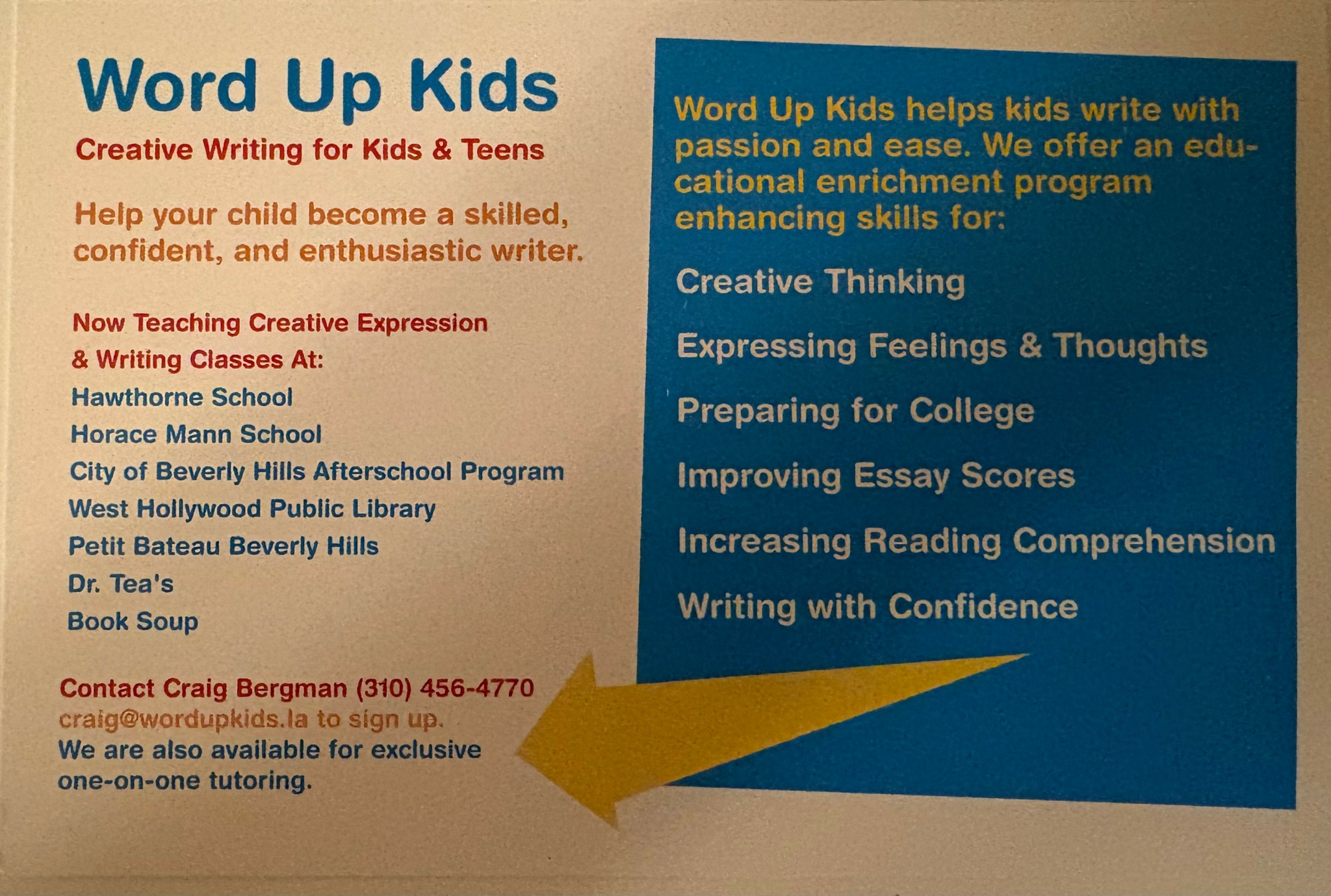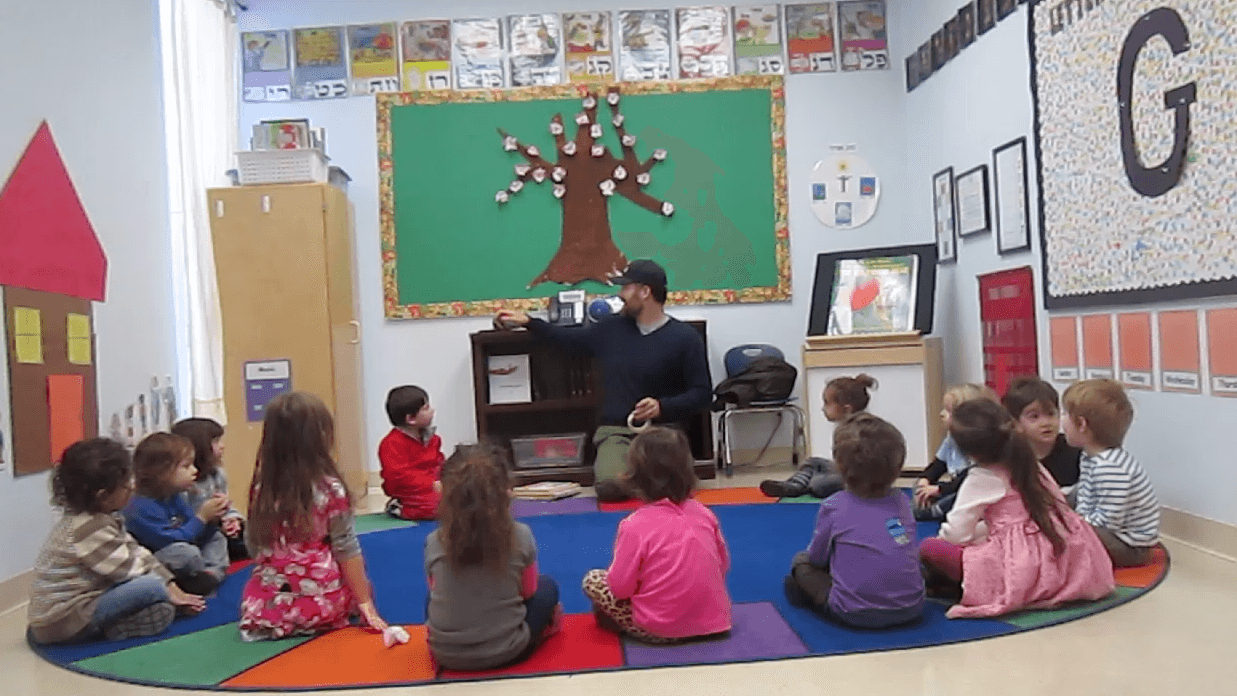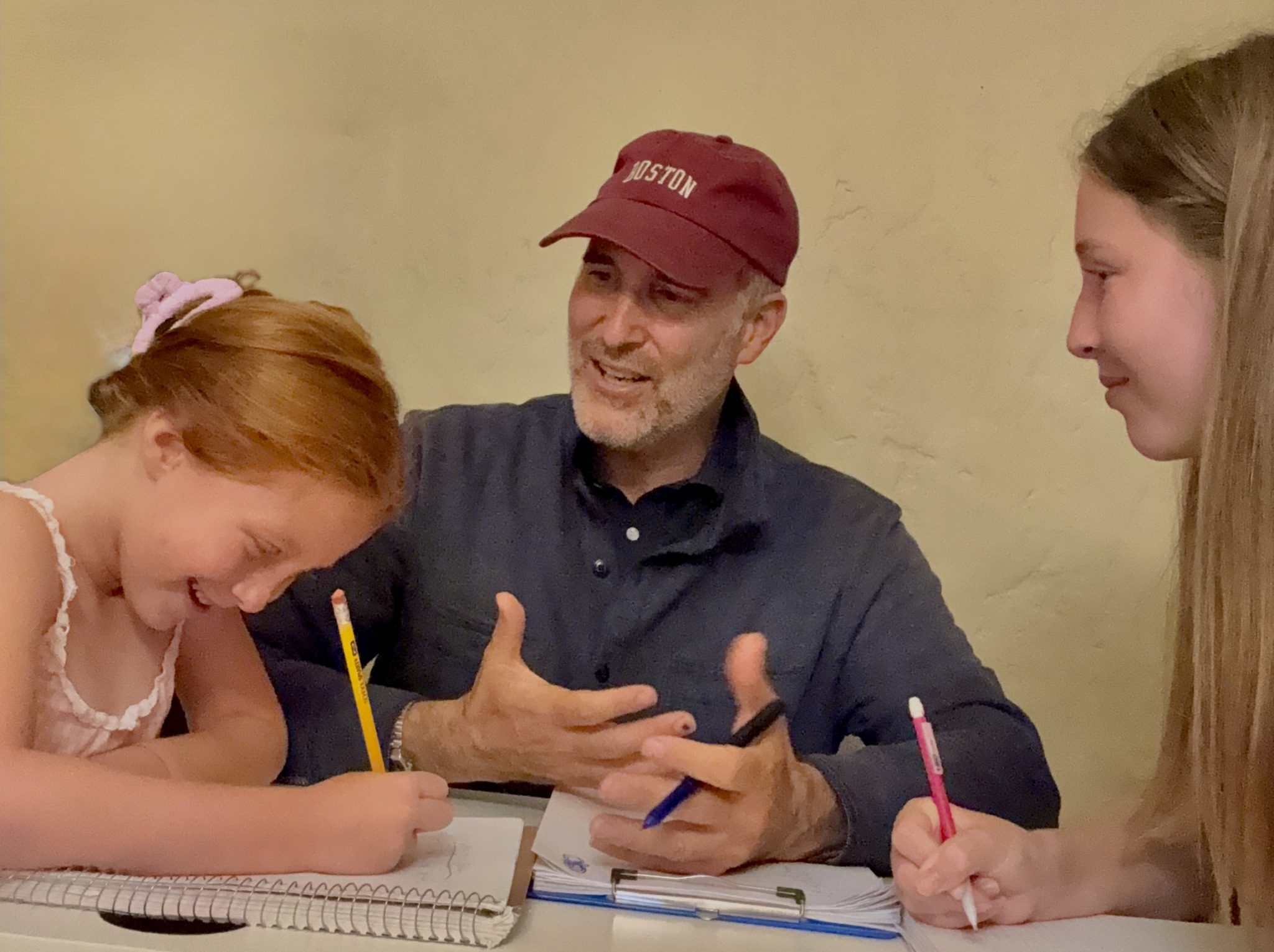Alright – so today we’ve got the honor of introducing you to Craig Bergman. We think you’ll enjoy our conversation, we’ve shared it below.
Craig, looking forward to hearing all of your stories today. We love heartwarming stories – do you have a heartwarming story from your career to share?
A few years ago, I was leading groups at a teen mental health and substance abuse facility in Southern California. One boy, around 16 or 17, stood out to me—not because of his participation, but because of his silence. Week after week, he sat quietly, looking serious, even angry. I assumed he might be one of those students I simply couldn’t reach.
Then one day, when the group started a bit casually, he snapped: “Are we going to start this group or not?” In that moment, I realized something important—he wasn’t just attending out of obligation. He valued the group. It was one of the few places where he could release the pain he carried.
Over time, he began to write. His pieces were raw, profound, and deeply moving. He would often read them aloud, and he even took the time to type them all up and hand them to me—I still keep them in my files. One piece started with the haunting line: “My father is a blur.” He wrote about having no memory of his father beyond a photograph and a faint recollection of him leaving when he was very young. His mother, seeing his father’s face in him, punished him emotionally and verbally. His writing poured out the wounds of abandonment and the heavy weight of carrying his father’s absence.
When he graduated from the program, he gave me a long, heartfelt letter. He told me it was the first time someone had truly seen his pain and helped him transform it into something meaningful. Writing gave him perspective, even a sense that his suffering could hold hidden blessings.
That experience stays with me. It reminded me of why I do this work: to show up consistently, bring care, and let go of expectations. Often, the students who seem unreachable are the ones listening most closely. Writing became the bridge that allowed this young man to express the inexpressible, and it reminded me not to take anything personally, but to trust the process and keep showing up.

Awesome – so before we get into the rest of our questions, can you briefly introduce yourself to our readers.
I’m Craig Bergman, founder and CEO of Word Up Kids, a writing and wellness company that helps people heal and grow through the power of writing. Originally launched as a writing enrichment program for children, Word Up Kids has since expanded into a multi-faceted organization that serves adults, schools, and rehabilitation centers.
How I Got Into This Work
I’ve always been drawn to writing, but it became deeply personal for me because of my own struggles with OCD and ADHD. Even though I was fortunate to grow up with a loving family and a strong education, I carried a lot of inner turbulence. After college, I discovered Kabbalah, which gave me tools to explore spirituality more deeply. Around that same time, I found Jack Grapes, the poet who created Method Writing. What I thought would just be a writing class turned out to be life-changing—it gave me a way to go inside myself, into my soul, and experience writing as profoundly therapeutic.
I remember thinking, I wish I had learned this in school. So I began teaching these techniques to kids, and the results were transformative—students opened up in ways that surprised even their parents. Later, I started teaching adults, and it was Daniel Ahearn, an attachment therapist, who first introduced me into the recovery world. Through him, I began leading writing groups in rehabilitation facilities, where I saw firsthand how writing could help people process trauma, addiction, and pain. Over the years, I’ve come to see writing as a kind of meditation for people who might not connect with traditional practices. It’s a direct line to source, to the truest part of ourselves.
What Problems We Solve
For kids, our work provides what schools often can’t. In mainstream classrooms, many capable or gifted kids are overlooked because teachers must focus on those needing extra help. Word Up Kids becomes an oasis for those students—a place where their creative spark is validated and they’re encouraged to go deeper. Traditional writing curriculums, even strong ones like Writer’s Workshop, can be formulaic and uninspired. Our method invites kids into true creative encounters: raw, expressive, and cathartic. It’s especially powerful for neurodivergent students, since the process is organic and messy in a way that matches their thinking, yet ultimately creates order and self-regulation.
For adults, writing addresses a universal problem: disconnection from the self. Whether highly successful or still searching, many people don’t truly know who they are or why they’re here. Writing provides a way to move past the chatter of the rational mind and connect with the deeper self. Many adults come to us saying, “I’ve always wanted to write,” but never had the support or accountability. Others are looking for a spiritual practice that isn’t meditation or yoga, and writing becomes their meditation. Just as importantly, writing circles create rare and meaningful community—a place to share, listen, and grow together.
In recovery, writing unlocks truths that talking alone often doesn’t. Many participants come in saying, “I’m not good at writing” or carry old school-related writing shame. But the method works like a back door to the mind: once people start putting words on the page, hidden emotions and insights surface. This makes writing a powerful tool for processing trauma, expressing pain safely, and transforming suffering into meaning.
What Sets Us Apart
What sets Word Up Kids apart is our dual focus: we are both an educational company and a wellness brand. Our curriculum is as much about critical thinking and creativity as it is about emotional intelligence and spiritual connection. And with the rise of AI tools like ChatGPT, the need for authentic self-expression is more important than ever. Our programs give people the space to reconnect with their voice, their story, and their inner source.
What I’m Most Proud Of
I’m most proud of the community we’ve built—thousands of students, clients, and participants who have discovered that writing can change the way they see themselves and the world.
The Key Takeaway
If you’ve ever said to yourself, “I’ve always wanted to write”—whether that means journaling, telling your story, or finally starting that book—there’s a place for you here. Writing isn’t just for professional authors. It’s a tool for healing, for self-expression, and for connecting with your soul. If you feel that urge, that pull toward writing, don’t ignore it. That’s your soul calling. My work is about helping you answer that call.
Let’s talk about resilience next – do you have a story you can share with us?
When I launched this work, I had no funding, no ad budget, and a family to support. Growth had to come the slow way. My marketing mentor m, Tal Batito, taught me to stop waiting for a miracle and to work my network—post consistently, talk to people I already know, follow up, repeat. This very interview actually came out of that approach.
The hardest part wasn’t money; it was self-promotion. I could champion anyone else, but speaking confidently about my own program tied me in knots. For years, some classes had one or two signups, others none. I ran a summer series at LACMA where several sessions didn’t fill at all. It was humbling to watch others sell out while I kept rebuilding.
The turning point was a simple shift: go deeper with whoever is in front of you. If one person enrolled, I poured everything into that one person—value, care, preparation. Over time, word of mouth began to work.
Managing my OCD/ADHD has been part of the journey too. I learned to honor the messy starts and stops and to practice consistency: keep dripping water on the stone. Every email, every circle, every conversation is a drop. Most days you don’t see the dent—but eventually you do. That’s resilience to me: showing up, again and again, until the rock yields.

What’s a lesson you had to unlearn and what’s the backstory?
One of the most important lessons I had to unlearn was the belief that I couldn’t scale my work. For years, I carried a mental block that told me growth was impossible. My Kabbalah teacher, Batya Salomon, would repeat over and over, “You have to see it.” But I couldn’t allow myself to see it.
Her teaching was simple but profound: you have to be relaxed in order to manifest. Through breathwork and nervous system regulation, I learned how to quiet my system enough to envision what I truly desired. She taught that life is a game of desire — that the higher power created us to receive endless fulfillment, and the only real failure is not desiring enough.
I had to unlearn my ingrained “I can’t” belief and begin building the muscle of vision: seeing what I wanted clearly, even when it seemed beyond logic. And I had to shift my focus from status and approval to purpose — from competing with others to fulfilling my soul’s mission. That reframe changed everything.
Contact Info:
- Website: https://www.WordUpKids.com
- Instagram: @craigbergman13
- Facebook: Craig Bergman



